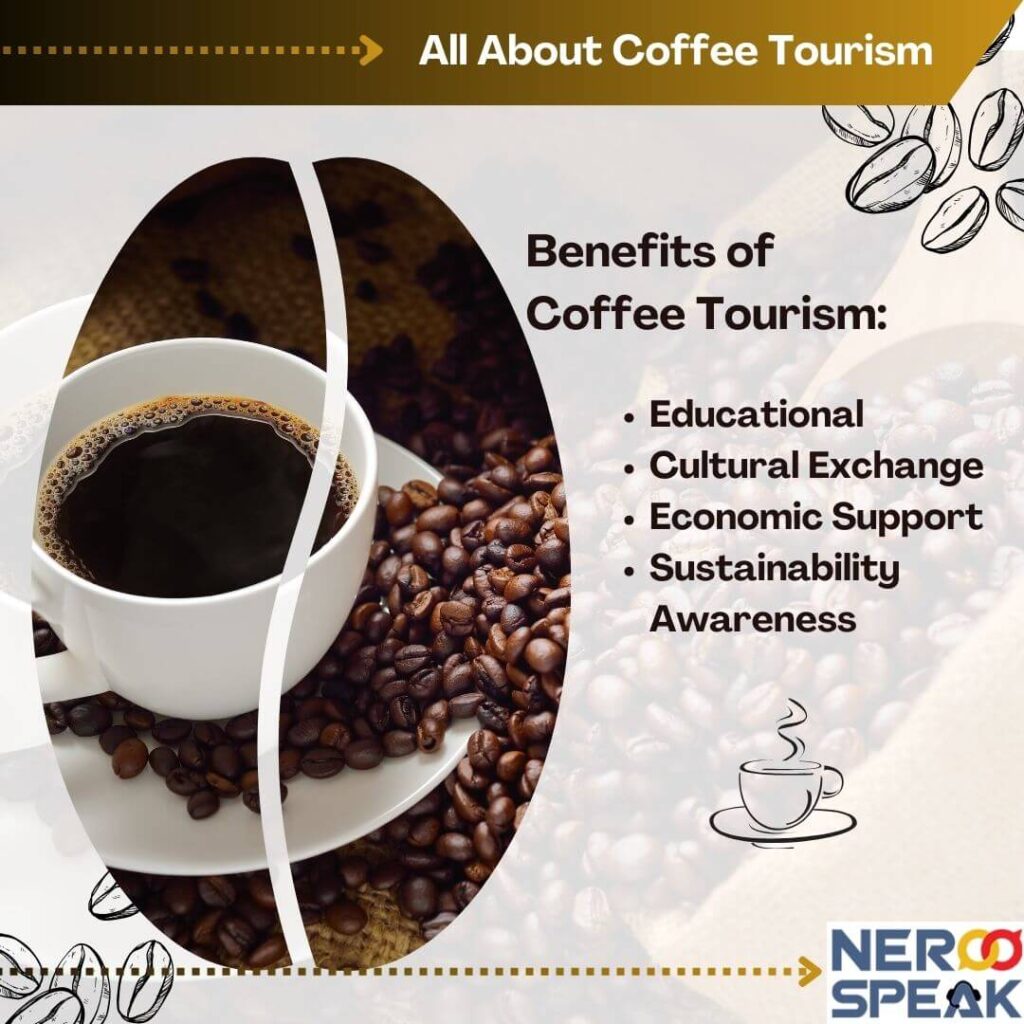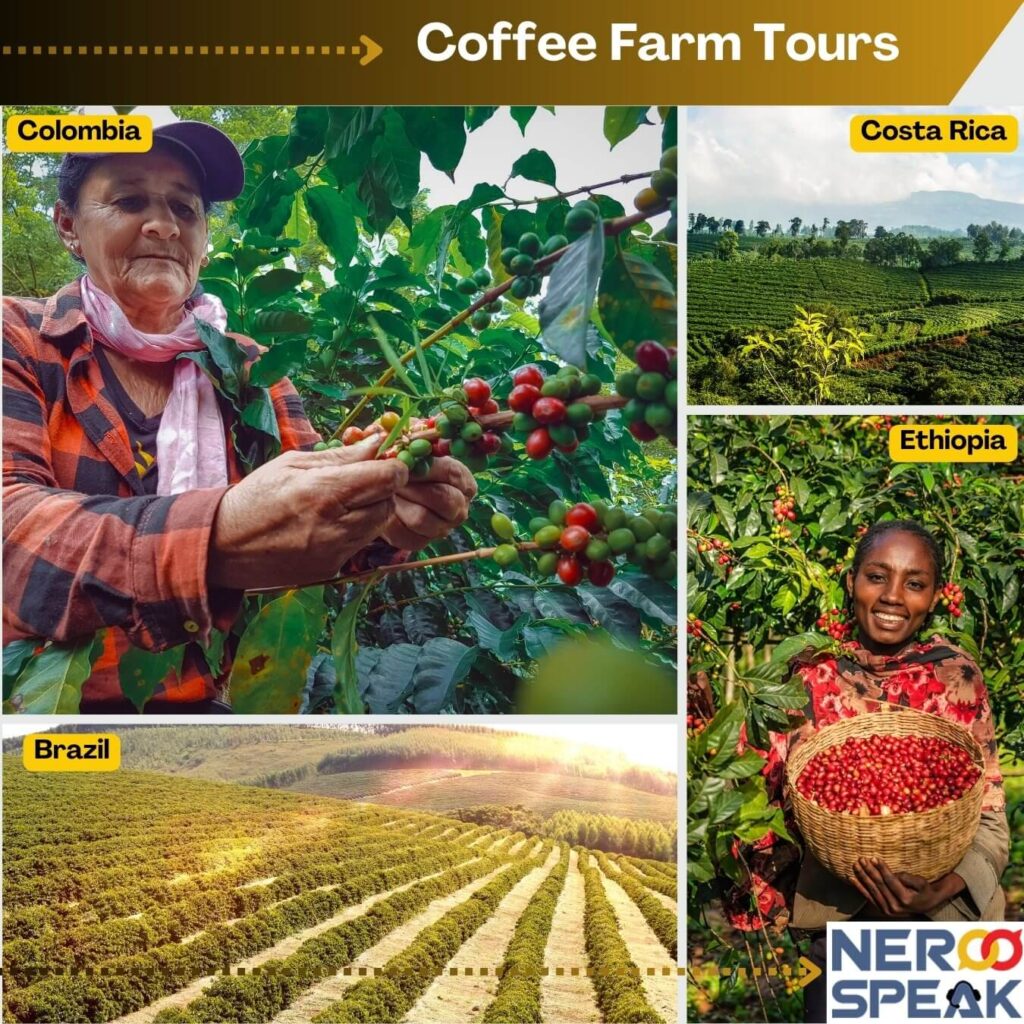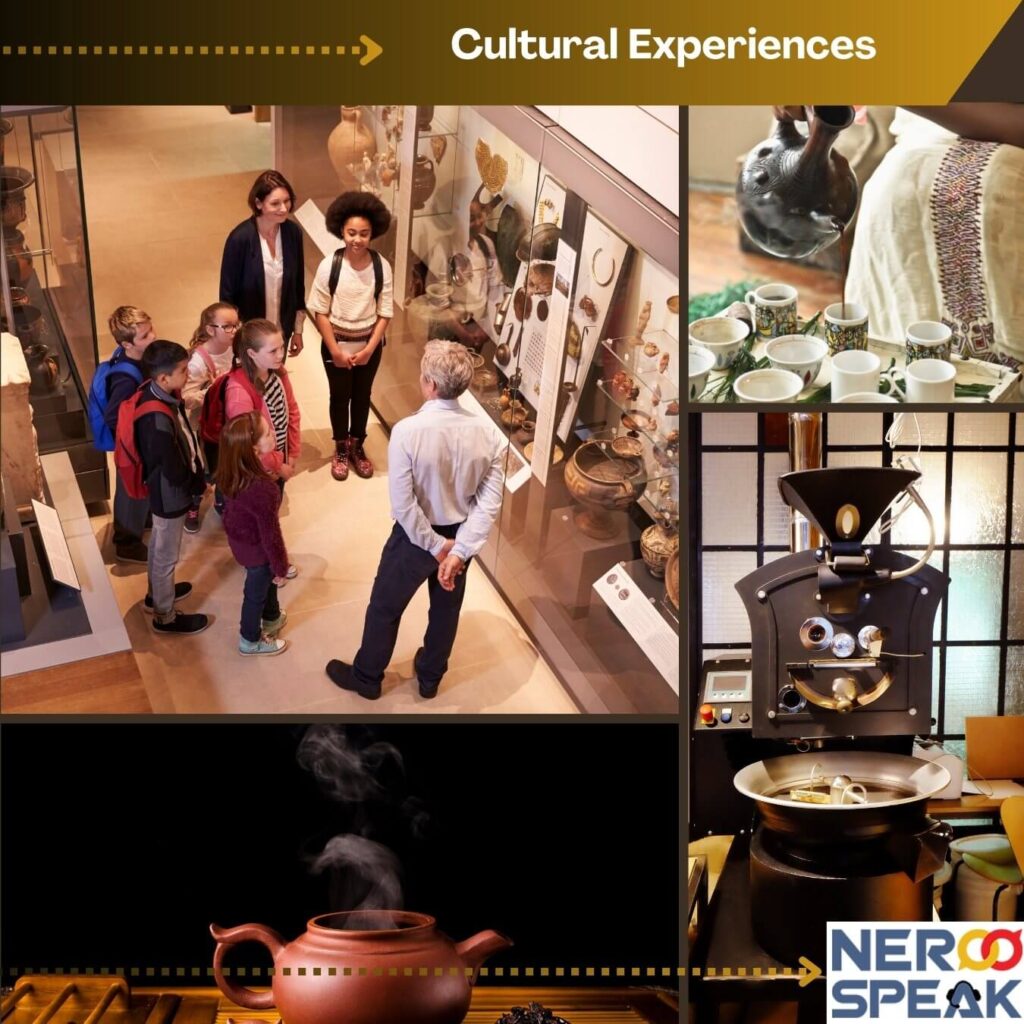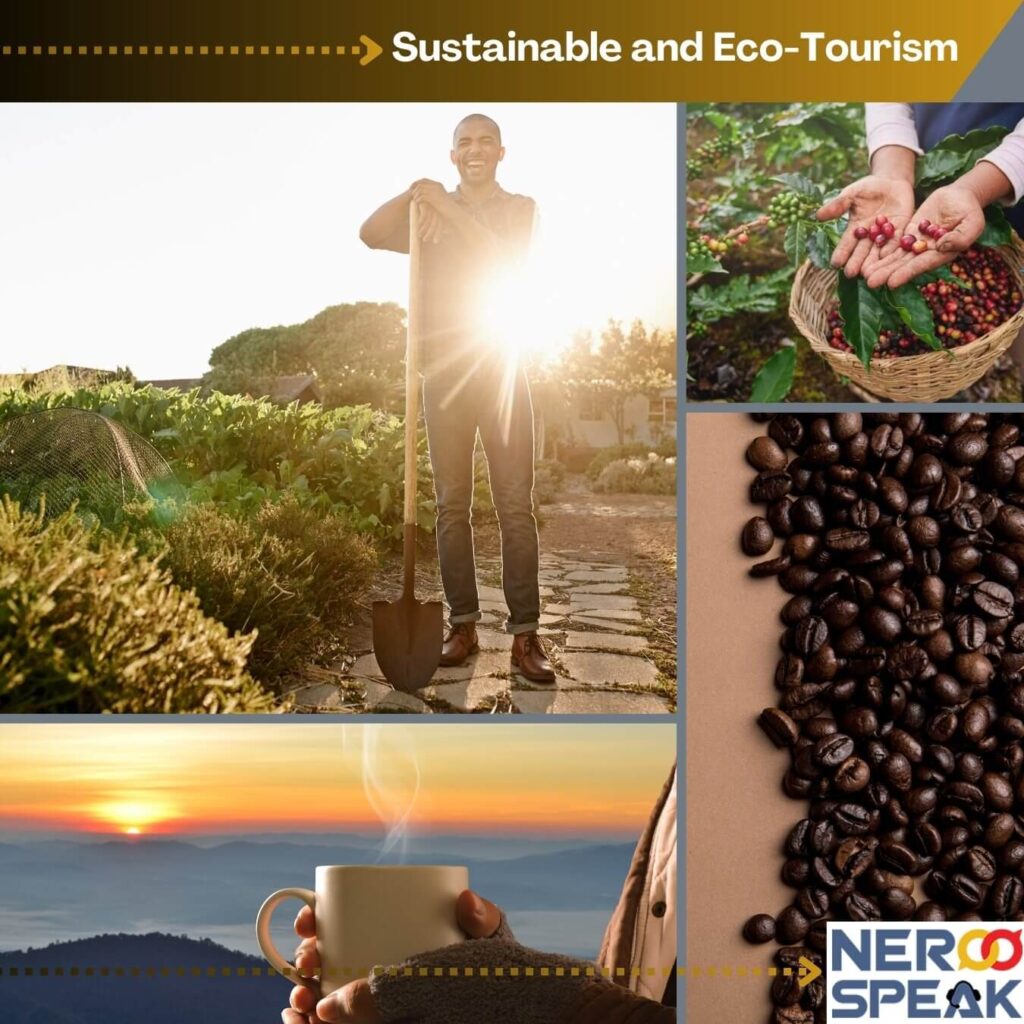Coffee tourism is a special type of travel. It is about visiting places where coffee is grown, seeing how coffee is made, and enjoying coffee culture worldwide. This form of tourism attracts coffee lovers. They want to learn about how coffee goes from bean to cup. They are also curious about how coffee is important in different places.

Activities of Coffee Tourism
Coffee tourism includes many hands-on and learning activities. These activities aim to give tourists a full view of the coffee industry. This view covers everything from growing coffee to enjoying it. Here are some important activities:
Coffee Farm Tours:
Visitors visit coffee farms to learn how coffee beans grow, are picked, and made ready for use.
Popular places to visit are Colombia, Costa Rica, Ethiopia, and Brazil. In these countries, people can learn about old and new farming methods. For instance, in Colombia, visitors can explore the coffee area, which is a UNESCO site. Here, they can take part in the coffee-making process.

Coffee Tasting and Cupping Sessions:
Tasting sessions, or cupping, let tourists try different types of coffee. They can learn to tell apart flavors, smells, and qualities. Coffee shops and roasteries often hold these events. They want to teach people about tasting coffee. For instance, in Costa Rica, coffee-tasting tours show the steps of roasting and brewing.

Cultural Experiences:
I am enjoying the local coffee culture. This includes things like traditional coffee ceremonies and trips to historic coffeehouses. In Ethiopia, the coffee ceremony is an important practice. It shows the social and community side of drinking coffee. For instance, Vienna, Austria, is well-known for its historic coffeehouses, which are a part of the city’s culture.

Workshops and Classes:
Hands-on workshops let people learn about coffee brewing techniques, latte art, and the science of making the best cup of coffee. For example, in Seattle, USA, a place called the Barista Academy has classes on making espresso, different brewing methods, and latte art.
You can also read: Weird American Food to Foreigners

Coffee Festivals and Events:
Attending coffee festivals, trade shows, and competitions celebrates coffee. These events bring together industry experts and fans. The Coffee Association holds events each year. One of these is the World Coffee Championships. It attracts entries and viewers from many places in the world.

Sustainable and Eco-Tourism:
They are focusing on coffee farming that is good for the earth and tourism which is kind to the environment. Many coffee tours help people learn about organic farming, fair trade, and how coffee affects the environment. For example, in Nicaragua, some coffee tours highlight eco-tourism and good practices, teaching visitors why it matters to support fair coffee production.

You can also read: About Tourism in Nigeria
Benefits of Coffee Tourism
- Educational: Gives a clear understanding of how coffee is made, from growing to brewing.
- Cultural Exchange: Shows the role of coffee in different cultures.
- Economic Support: Helps local economies and coffee farmers by bringing tourists to coffee-growing areas.
- Sustainability Awareness: Stresses the need for sustainable farming and fair trade.
We hope you had a good read!!
Common FAQs:
1- Why are coffee shops popular among tourists?
- Cultural Experience: Coffee shops show local culture and daily life. They are great places for social activity and community gathering. For example, cafés in Paris are well-known for being central to the city’s social life.
- Comfort and Ambiance: Many coffee shops create a warm, friendly feel that helps people relax and connect. A good example is Starbucks; its success is partly because of its steady ambiance and comfy setting.
- Local Specialties: Travelers look for local coffee types and brewing methods. Turkish coffee houses offer traditional Turkish coffee, giving a special cultural experience.
- Wi-Fi and Connectivity: Many modern coffee shops have free Wi-Fi. This makes them favorite spots for tourists to unwind, plan their activities, or work.
2- What place is known for coffee?
Several regions around the world are famous for their coffee:
- Colombia: This country is known for making high-quality Arabica coffee beans. It has a mild and balanced flavor. The Coffee Cultural Landscape of Colombia is a UNESCO World Heritage site.
- Ethiopia: Often called the birthplace of coffee, Ethiopia is famous for many rich coffee types. Ethiopian Yirgacheffe coffee is well-known for its fruity and floral flavors.
- Brazil: The biggest coffee producer in the world, Brazil is known for its full-bodied coffee. Brazilian Santos coffee is popular for its smooth taste and nutty smell.
- Vietnam: This country is famous for its special way of making coffee, which often includes sweetened condensed milk. Vietnamese iced coffee (Cà phê sữa đá) is a well-loved local drink.
3- Why is coffee culture so popular?
- Social Interaction: Coffee shops are places where people meet to talk, work, or unwind. In many cultures, sharing coffee is a normal social event.
- Versatility: Coffee comes in many forms, like espresso, lattes, iced coffee, and cold brew, for different likes. Special coffee drinks, such as pumpkin spice lattes and frappuccinos, are quite popular.
- Ritual and Routine: For many, having coffee is a daily habit that brings comfort and consistency. A morning coffee routine is common around the globe, giving people a calm moment before the day begins.
- Global Influence: Coffee culture has spread around the world, shaped by different traditions and new methods for making coffee. The rise of coffee shops like Starbucks has made coffee culture more popular.
Browse our website NerooSpeak now and explore more useful articles!
- Easy Busy Day Soup Recipes
- What Can Dogs Eat Instead of Dog Food?
- 50 Soft Foods to Eat After Tooth Extraction
- Snack Foods Being Banned
- Canowindra Tourism: Things You Need to Know

Haya Yaseen is a skilled WordPress editor and a dedicated business management specialist. With a keen eye for detail and a passion for crafting engaging digital content, Haya excels in creating and managing professional WordPress websites. She combines her technical expertise with her strong background in business management to deliver innovative and client-focused solutions.
Haya is an alumna of The University of California, Los Angeles (UCLA), where she earned her degree in Business Administration, further refining her skills in strategic thinking and organizational management. Her academic background, paired with her professional experience, makes her a versatile and results-driven individual in the fields of web development and business management.
1 thought on “All About Coffee Tourism”